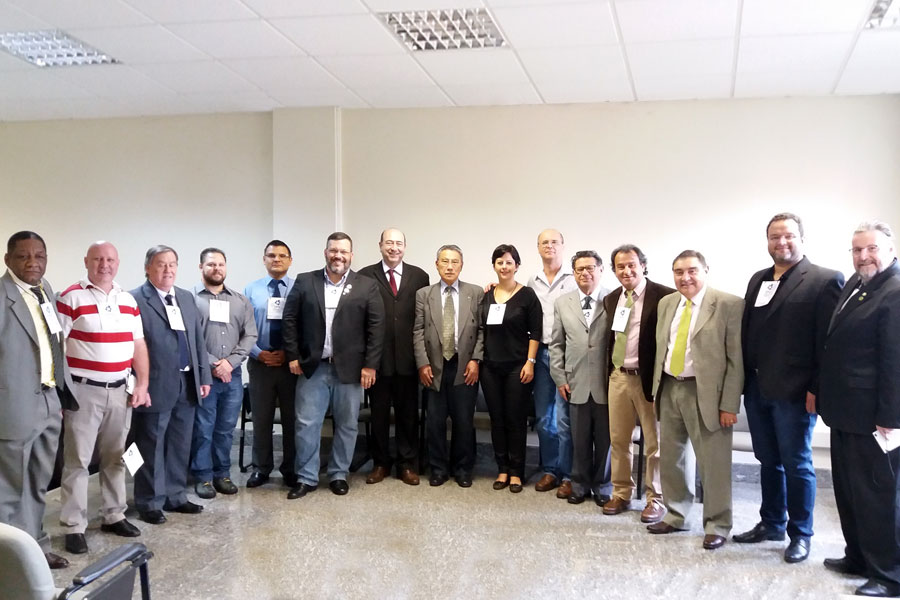|
Teachers of the Department of Basic Science of the UFRO Faculty of Medicine participated in the Histology Congress in Santiago de Compostela, Spain, and in a business meeting and an Anatomy and Experimental Biostructure Congress in Goiania, Brazil, at the beginning of November. |
After the meetings, the Department of Basic Science of the Universidad de La Frontera and the Department of Morphology of the Federal University of Goias (UFG) strengthened their International Cooperation Agreement, which is being processed by the International Affairs Office of the UFRO and the Cultural and Scientific Relations Office of the UFG. The organizers of these activities were the director of the UFRO Basic Science Department, Dr. Marco Paredes, and the director of the UFG Morphology Department, Dr. Paulo Cesar Moreira, in cooperation with UFRO scholars, Fernando Matamala, Enrique Olave, Ricardo Cornejo and Jorge Henríquez. It is worth mentioning that the work presented by the UFRO member, Dr. Enrique Olave, in the meeting in Brazil was awarded. VISITORS “In both meetings, we wanted to create links of cooperation, integration and collaboration. In Spain, we achieved to position our concept of experimental biostructure, which is a research line that we are developing with researchers in morphology and cellular and molecular biologists. We made contact with teachers of the Autonomous University of Madrid and Brazil who are going to visit Temuco in January 2018”, Paredes explained. The Federal University of Goias is a public university in Goiania, the capital of the Goias State in Brazil. It is the biggest university of that state, has about 23 thousand undergraduate, postgraduate and doctoral students, more than 30 doctoral programs in different areas of knowledge and more than 60 master´s programs. At the moment, there are no international agreements between the University of La Frontera and the Federal University of Goias. This is the first initiative in this area and does not interfere with other current cooperation initiatives with other universities. “We benefit from this agreement because it permits us to resolve some historical problems we had in the field of human anatomy, for example the access to bodies which are difficult to get in Chile. In this context, we could make a body donation agreement with the Brazilians, since they do not have this problem in Brazil”, added Paredes. SCOPES But the agreement also permits to advance when it comes to body preservation techniques. “We are using body preservation techniques that are not used anymore in the rest of the world. They are fixed in formalin and that generates toxicity for the person who is in contact with it (teachers, students, technicians). But in Brazil, they use techniques that are less toxic: the bodies are glycerinated and they will show us this technique and discuss the possibility of changing to this technique next year during the second semester.” The agreement with the Brazilian university covers the areas of technical exchange (the management of dead bodies), the possibility to create a postgraduate program in binational experimental biostructure, the exchange of undergraduate and postgraduate experiences and research “It is a big step for our Department to have the possibility to create new cooperations with the Brazilian and the Spanish university, since this will generate an increase the productivity and quality of our scientific publications through the inclusion of joint research lines. Our development plan considers the physical space we have, to aim at experimental biostructure and agreements for the development of young people and postdoctoral students that are related to this topic”, Dr. Marco Paredes concluded.
Written by: Fabian Aguirre
Faculty of Medicine |
Written by: Fabian Aguirre
Faculty of Medicine





